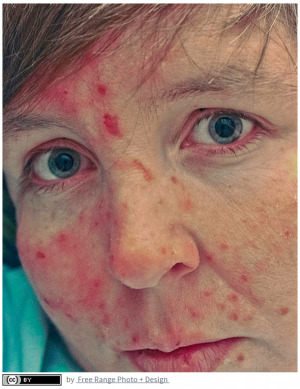Boredom and frustration trigger skin-picking and other compulsive behaviors

Individuals who get easily bored, frustrated or impatient are more inclined to develop skin-picking and other body-focused repetitive behaviors, say researchers at the Institut universitaire en santé mentale de Montréal and the University of Montreal.
"Chronic hair-pulling, skin-picking disorder and nail-biting and various other habits are known as body-focused repetitive behaviors. Although these behaviours can induce important distress, they also seem to satisfy an urge and deliver some form of reward'', says principal investigator Kieron O'Connor. Chronic hair-pulling is also known as trichotillomania. "We believe that individuals with these repetitive behaviours maybe perfectionistic, meaning that they are unable to relax and to perform task at a 'normal' pace. They are therefore prone to frustration, impatience, and dissatisfaction when they do not reach their goals. They also experience greater levels of boredom."
O'Connor and his colleagues came to these conclusions by working with 48 study participants, half of whom suffered these repetitive behaviours and half of whom didn't (acting therefore as the controls.) The participants were referred to a clinical evaluator for a telephone screening interview and completed questionnaires at home. The questionnaires included a scale that evaluates emotions, including boredom, anger, guilt, irritability, anxiety. The participants were then individually exposed to four experimental situations at the research centre, each one designed to provoke a different feeling: stress, relaxation, frustration and boredom. The first two involved the screening of videos (a plane crash and the waves on a beach.) Frustration was elicited by asking the participants to complete a task that was supposedly easy and quick (it wasn't) and boredom was caused by... leaving the participant alone in a room for six minutes!
Individuals with a history of body-focussed repetitive behaviours reported a greater urge to engage in these behaviours than controls during the boredom and frustration phases of the experiment, but not in the relaxation situation. "These results partially support our hypothesis in that participants were more likely to engage in body-focussed repetitive behaviours when they felt bored, frustrated, and dissatisfied than when they felt relaxed. Moreover, they do engage in these behaviours when they are under stress. This means that condition is not simply due to "nervous" habits," added Sarah Roberts, first author of the study. "The findings suggest that individuals suffering from body-focussed repetitive behaviours could benefit from treatments designed to reduce frustration and boredom and to modify perfectionist beliefs."
More information: Roberts S, O'Connor K, Aardema F, Bélanger C. The impact of emotions on body-Focused repetitive behaviors: evidence from a non-treatment-seeking sample. J Behav Ther Exp Psychiatry. 2015 Mar;46:189-97. PubMed PMID: 25460266.















